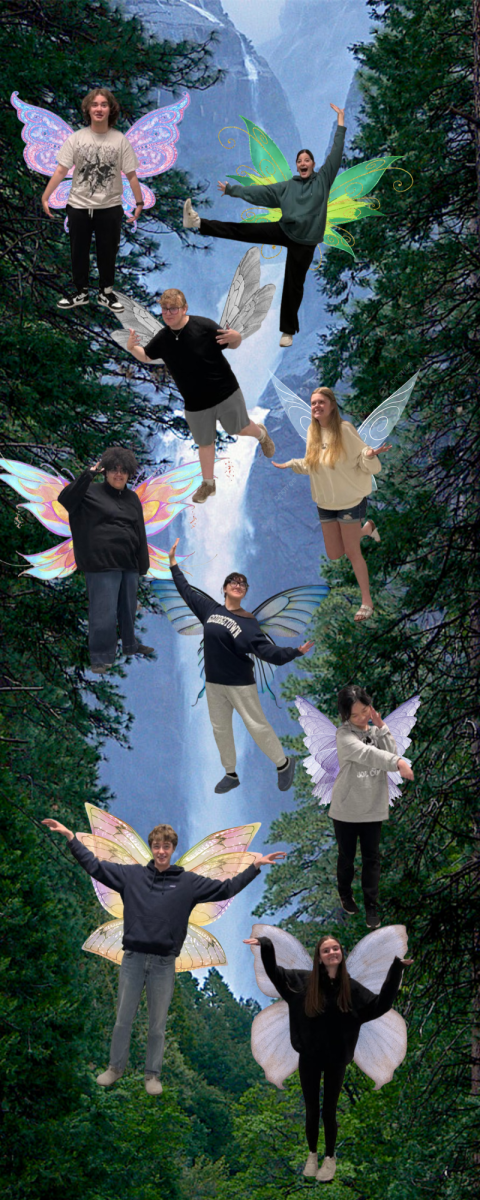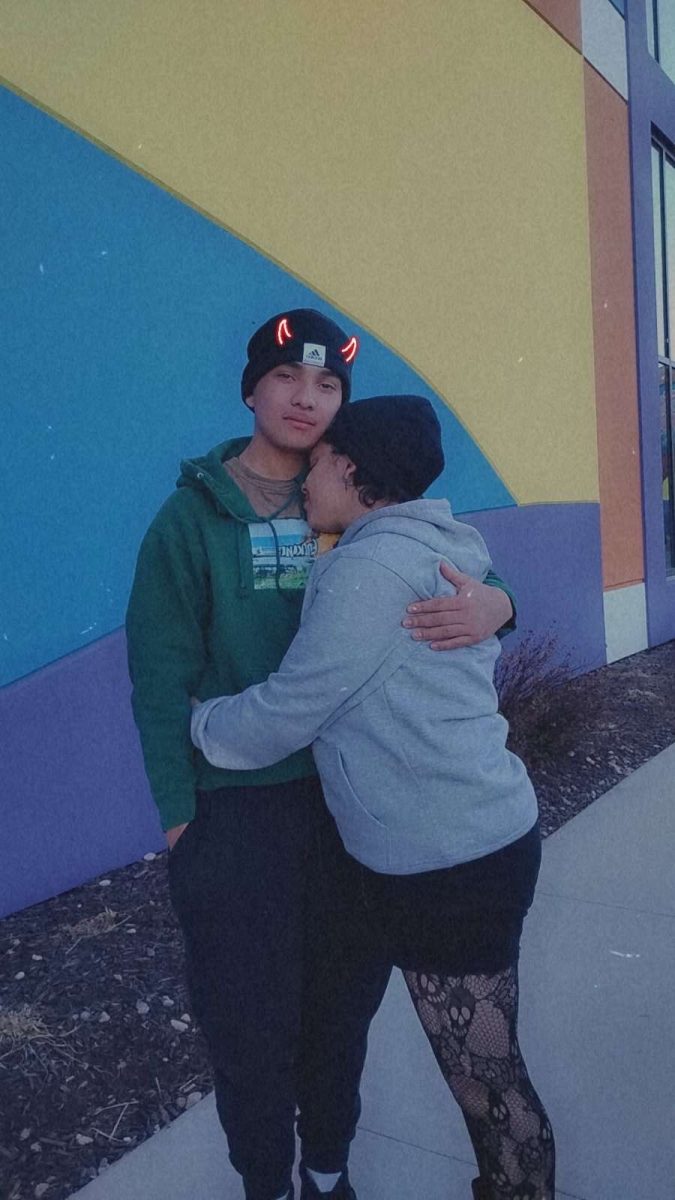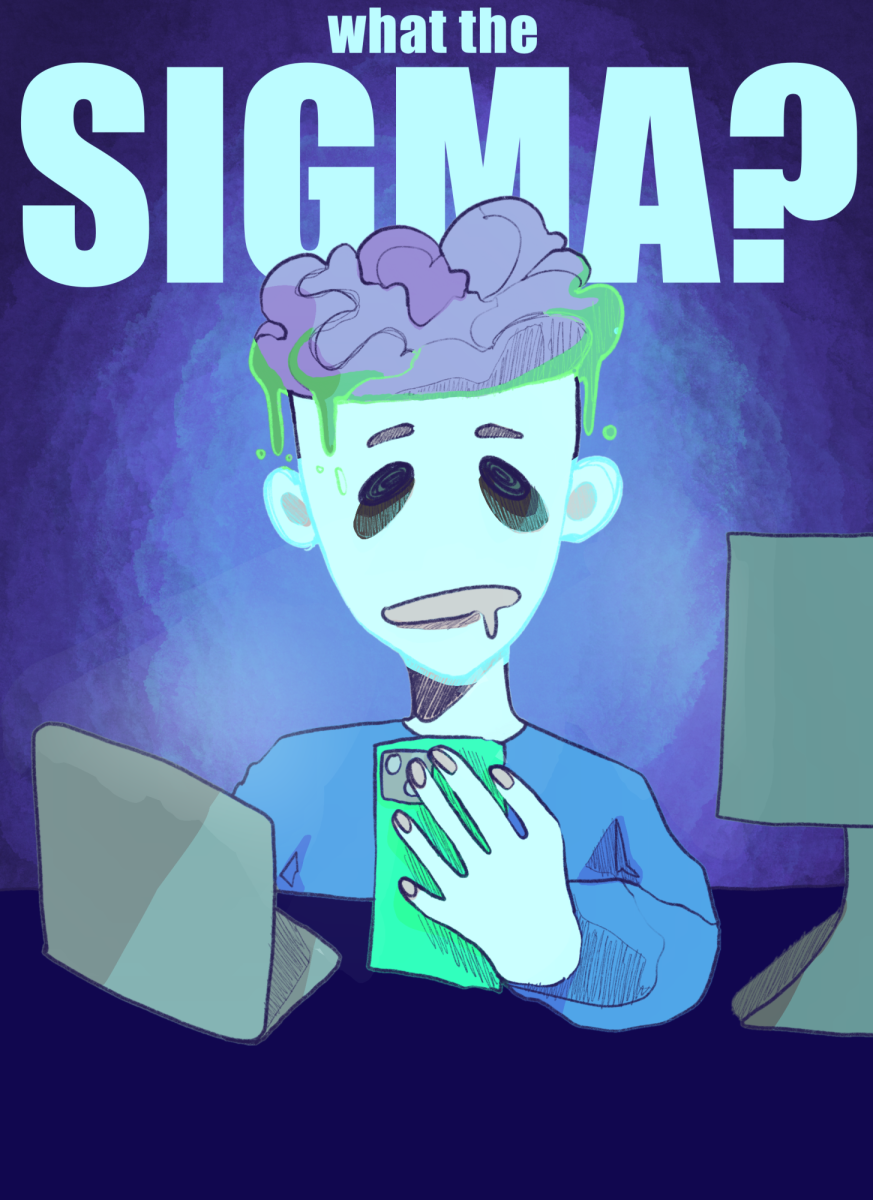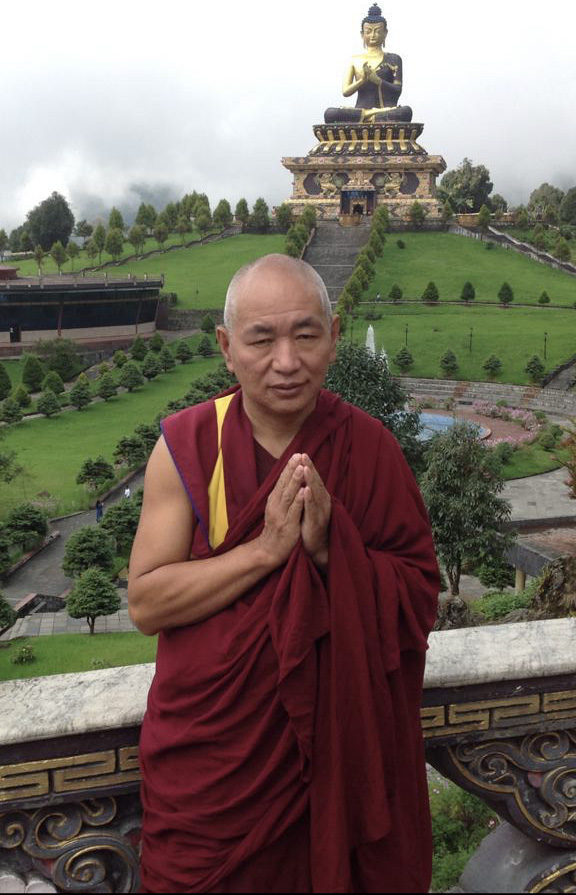With St. Patrick’s Day falling on March 17, the Irish spirit is hanging surely in the air. We have green beer, four-leafed clovers, leprechauns, and Chicago dyeing its river green to celebrate the holiday. St. Patrick’s Day traditionally celebrates the patron saint of Ireland, along with the arrival of Christianity in the country. However, have you ever wondered what Ireland was like before it was Christianized?
Culture
Samhain & Beltane
Like any culture, pre-Christian Ireland had holidays and festivals, the two most notable of which were Samhain and Beltane. According to folklore, these two holidays marked when the doors to the Otherworld, the realm of the Fae, opened. On Samhain and Beltane, fairies and spirits could cross into the human realm.
Samhain is the Celtic harvest festival. The holiday is traditionally held on Nov. 1, with festivities starting at sunset on the last day of October. Celebrations usually involve bonfires, dressing up costumes, and feasting. If any of this sounds familiar, this is likely because Samhain influenced the modern-day holiday of Halloween.
Beltane, held on May 1, is the Celtic festival that welcomes spring. Like Samhain, celebrations involve feasting and bonfires, including decorating with flowers. Beltane’s better-known modern equivalent is the May Day celebration.
While both holidays are ancient, they are still celebrated by people worldwide today.
Druids
Chances are, you’ve heard of the Druids from the roleplaying game Dungeons & Dragons. Similarly to their D&D counterparts, real-world Druids are known for their relationship with nature and their rumored magical powers. The Druids of pre-Christian Ireland were priests and keepers of knowledge, sometimes acting as advisors to kings or, in stories, mentors to young heroes.
SHS Language Arts teacher Brenna Squires recounted a Druid Ceremony she had seen. Druid ceremonies can be held for various reasons, including weddings, funerals, and seasonal celebrations. The one Squires saw was celebrating the summer solstice.
“While I was in Ireland, I witnessed a Druid fire ceremony,” Squires said. “Druids are an ancient, ancient religious order that [has] a lot of emphasis on nature. There are druid beliefs with trees, with seasons. […] A lot of it comes down to the location people were living in. There were these ancient standing stones. Sometimes they were a single pillar of a stone and sometimes it’s a circle of stones. This one moment there was a fire burning and a circle of Druids around it and they would sing and there would be running and jumping over the fire. It was symbolic of the change and right at the end of the summer solstice.”
Mythology
Gods or Fairies?
The Tuatha De Danann were the pre-Christian gods of Ireland. Some prominent members of the Tuatha De included Lugh, the god of light, Brigid, the goddess of poetry and smithing, and Dagda, the father of most of the gods.
However, the Tuatha De are sometimes considered to be fairies. This stems from the arrival of Christianity in Ireland. Being a monotheistic religion, the Christians only had room for one God. As a result, the Tuatha De Danann were demoted to unusually powerful fairies and demons.
“[Celtic mythology] is a lot more balanced along gender lines,” Squires said. “Greek mythology tends to make women the gods of things like motherhood, birth, beauty, [and] love. Whereas, in Celtic mythology, women are goddesses of courage or of smithing.”
“One of my favorite [gods] is Brigid,” Squires said. “Brigid is the goddess of poetry, fire, and smith work. Whereas in Greek mythology you have Hephaestus, the big burly male god. In [Ireland] it’s a female goddess who’s the god of blacksmiths, who’s also the god of poetry. [The Celts] associate fire with poetry because it’s creative.”
Later in the interview, Squires went into more detail about Brigid’s relationship with the Catholic church.
“[Brigid’s] identity was adopted into Catholic sainthood in the early hundreds when the priests were traveling into Ireland from Rome and bringing Catholicism,” Squires said. “Brigid is one of the major saints of Ireland. Saint Brigid is known as a healer, which is also the same Brigid the Celtic goddess. She’s also known as the goddess of beer. She has her own feast day. She’s one of the top three Saints of Ireland.” Squires also said that one of the other top three saints is Saint Patrick.
Aside from Brigid, Squires also discussed another goddess in the Irish pantheon.
“Another one of my favorites is the Morrígan,” she said, “The Morrígan is a triple goddess. She appears in lots of different forms. She can appear before a battle and decides who lives or dies. She can be a goddess of destruction, but she can also be a goddess of victory. […] You have a lot more of this power [and] strength in the female goddesses.”
Heroes
Irish mythology is largely split up into four Cycles, or sets of stories. The Ulster Cycle and the Fenian Cycle deal with the heroes of Ulster (Northern Ireland) and Connacht (Middle Ireland) respectively. The two most prominent heroes are Fionn mac Cumhal, of the Fenian Cycle, and Cuchulain, of the Ulster Cycle.
“I like [Cuchulain’s] story because his origin is sort of like a demigod,” she said. “The general belief is that he was fathered by mortal parents, but that his father was actually the god of light in disguise. He becomes Cuchulain after his first battle. He’s called to a king and in meeting the king, he kills the king’s favorite dog because the dog attacks him. It’s the hound of Culain and that’s what his name ends up meaning. He kills the hound and he offers to become the hound of the king, until the king can replace him. [Cuchulain] goes on to represent victory in battle and becomes sort of like a national hero. […] That’s why you hear him referenced in Angela’s Ashes, [which] you read in LA 11.”
Another notable Irish hero was Fionn mac Cumhal. Fionn was the leader of the legendary Fianna, a band of warrior poets stationed in the Connacht region of Ireland. The Fianna had many adventures, including, but not limited to, love triangles, getting stuck to the floor, and fighting fairies.
Myth Retelling:
(CONTENT WARNING: This retelling contains depictions of blood, violence, and death in attempt to stay true to the original myth)
Night lay like a heavy blanket on the hill of Tara. Shadow and gloom hung on the city’s walls, dissipated only by thin halos of torchlight. A crescent moon waited like a fish hook in the sky, surrounded by scattered stars. An easterly wind blew. Its fingers caress the wavering flames of the castle. In its grasp, the wind held a faint tang of salt, from the sea not far behind.
Fionn sat on the edge of Tara’s wall, spear resting on his lap. He gazes into the impenetrable darkness ahead. From that darkness, would come the Fae. It was an hour past sunset. The doors to the Otherworld should have long been open. It was in that realm that fairies made their homes.
Tapping the shaft of his spear, he waited. It shouldn’t be long, now. The High King had said Aillen came every Samhain. And, every Samhain, the Fae would set the city ablaze. It was recompense for some slight given long ago. Fae were not known to forgive and forget. They were known for revenge and tricks, retribution and wiles. Aillen would come. It wouldn’t be long now.
There was an idea behind this, an end goal Fionn could see clearly in his mind. He had been promised something in exchange for dealing with the vengeful spirit. His mind flickers back to earlier that morning.
The warm glow of the High King’s hall came to mind, a stark difference from the cold gloom of the night. There was the scent of smoke, the rich smells of a banquet laid out on a massive table. Fionn had kneeled before them all in awe. Not just the King, but the whole of the Fianna, the famed warrior poets of Ireland.
He had asked to join them. Felt the thrill that thrummed through his veins.
A bark of harsh laughter had split the silence. A giant of a man was bent nearly double with laughter. The rest of the Fenians had joined him. Fionn had recognized the giant: Goll mac Morna. His hands clenched where they still held contact with the floor. Goll had stolen the leadership of the Fianna.
“Look, kid,” Goll said. “Go home. No one wants a child soldier.”
“I’m a teenager, actually,” Fionn replied. “Almost an adult.”
“Almost, but not quite,” the giant frowned. “Go home. Before I stick a spear through your chest, just like I did to your father before you.”
Fionn did not flinch. He knew that fact; had known it since he was in the cradle. The fact did not change his mind. Only made him all the more certain. “And if I don’t?”
Tension hung thick in the room, clamping itself around the vocal cords of all present.
After a moment, Goll clears his throat. “So,” he narrowed his dark eyes at the boy before him, “you want to be a member of the Fianna.” The giant sat back in his seat, and looked to his left, toward the High King. “Your Majesty, you said that you had a problem dropping on your doorstep every Samhain.”
The High King nearly choked on his wine. He set his cup down, and cleared his throat. “I– I did. I was rather hoping it would be taken care of by one of the Fenians, but–” He broke off, avoiding Goll’s eyes.
The giant sat forward, gaze resting on Fionn. “The King, here, has had a fairy stopping by once a year, always on our harvest festival. Demon lulls the people to sleep, before setting the place alight,” he told the boy. “You see what I’m getting at, don’t you, Blondie?”
Fionn nods. “I kill the fairy, I become a member of the Fianna.”
“Not quite,” Goll smiled, showing a few missing teeth. “If you manage to kill that thing and come back alive, I’ll give you my seat as leader.”
That cold eastern wind ruffled at Fionn’s green cloak as he sat on the wall. He absently traced the burn scar on his thumb. Who could’ve said no to a deal like that? People didn’t receive offers like that every day.
Sleep pulled at Fionn’s eyelids, beckoning him into its warm depths. As he rubbed his eyes, he could have almost sworn he heard the airy song of a flute in the distance. Even so, he knew it to be Dream’s sweet wiles. The half awake mind had a tendency to play tricks on its owner.
A strong scent assaulted the boy’s nose. He blinked sleepily at the dark of the plain before him. The scent was charged, like the air before a storm. Slightly charred, like a tree after being struck by lightning. Except there wasn’t a cloud in the sky.
It was then the Fionn was certain the sound he heard was real. The lilting soprano of a flute drifting across the plain. He gripped the hilt of his spear, muscles tensing. Fairy music.
In a moment of quick thinking, he thrust his palm into the spear’s point. He grits his teeth against the sting. Pain was a stimulant, a safe. It kept him awake. It kept him alive.
With his free hand, he flips the hood of his cloak over his head. Superstition told him that the Fae could not see what was hidden by a mantle of green. As hot blood wet his palm, he hoped that the tale held true.
The fluting stops. A dead silence hung over the world. Behind him, Fionn could no longer hear the faint rustle of foot traffic. He hadn’t noticed it until it was gone.
A soft, showman’s tenor split the silence like a woodcutter’s axe.
“Oh, Moon, high above– glinting like ice;
Give to me your waning light.
In recompense to the King’s sweet avarice;
His Tara shall burn tonight.”
It was a song of triumph that sent a chill down Fionn’s spine. Even so, it was enchanting. The draw of an Otherworldly power. He wraps his bleeding palm around the spear’s point. Increases his grip’s pressure on the bronze.
Fionn became aware of the barest silhouette in the dark. The faintest of outlines, only detectable by the stars it covered. A still shape, floating in the air before him. He holds his breath, willing himself not to move.
The Fae’s mouth opens, almost unnaturally wide. Two knife-sharp fangs glint dully in the low light of the moon. The Fae hisses softly. Light sparked in the back of his throat. There was a dusky scent, almost like smoke. Fionn only had a moment to react before the creature spit out a jet of flame.
He caught the fire in his cloak, smothering its life in the folds of fabric. Just like that, the flame winked out.
There was a moment’s pause. Fionn could see the faint blue glow of the Fae’s eyes narrow in the darkness. He grips his spear, steeling himself for battle. Him or Aillen. One of them will die tonight.
Instead of setting Fionn alight, the Fae touches down on the stone wall. He scents the air, twisting his head this way and that. Long ears twitch like a cat’s. Searching. The Fae was searching. It meant the green cloak worked. Excitement fills Fionn’s chest, though that high didn’t last for long.
With a snort of dismissal, the Fae strode for the inner edge of the wall. He places his hands on the turrets, gazing at the city below, picking it apart like an angry, yet graceful vulture.
Fionn stalks closer to the Fae. Quickly and quietly, he closes the distance between them. He sees the hard light in the Fae’s blue eyes. Watches as the creature opens its mouth again. A hiss leaves its mouth.
He snares his hand through waves of soft hair. Yanks the Fae downward and covers its face with his cloak. There’s a wumph of smothered flame. Fionn drops the Fae and darts out of reach.
The Fae staggers to his feet, dazed and wild-eyed. The glow of his irises has only increased, burning blue with rage. Dark soot is smeared over pale skin.
“Who did that?” The creature roars, whipping around. His voice echoes in the empty darkness. “Show yourself!”
Fionn decides it’s probably safest not to reply. Instead, he sneaks around behind the Fae’s back. As carefully as possible, he grabs the Fae’s cloak. He flips it over the creature’s head in one quick motion. An unearthly shriek of rage splits the night.
Frantic, the Fae staggers backward, hands clawing at fabric. Fionn trips him with his spear, knocking the creature to the cold stone. Taking a deep breath, the boy hefts his spear for the killing blow. Blue eyes gaze up balefully.
A shadow ripples on the stone floor. A blur of motion. In the blink of an eye, the Fae is gone. Fionn stands stunned for a few breaths, still holding his spear.
“You forget what you’re dealing with, mortal,” a smooth voice spits. The Fae, silhouetted a hundred yards away.
Fionn blinks. Could it see him, after all?
The creature tilts its head. “You may be invisible to me, but I can still hear your movements. It is rather unfortunate for you, seeing that your kind lacks simple grace.”
Heat rises to Fionn’s cheeks. He grips his spear tighter, adjusting his stance. “You take that back.”
The shadow chuckles. A light sparks. A jet of flame arrows through the sky. Fionn drops to his stomach, hands over his head. Heat sears at his back. In a moment, it’s over. Hesitantly, he sits up.
His cloak is on fire. Fionn jumps to his feet, whirling around to try and pat out the flame. In his panic, he misses the fluid ripple of shadow.
Something hits him. Rips off his cloak. Slams his back into the stone below. Fingers dig into his shoulders. Blue eyes glint coldly. A wicked, fanged grin spreads onto a soot-streaked face.
“Gotcha!” The Fae sneers. “You thought you were pretty smart, did you not? A green cloak to hide from the scary fairy–” a laugh, “–does not stay green for very long, when it has been set alight.” His smile drops. He purses his lips. “You have been a fun little hitch in my plans, but, alas, your role is finished.”
“What are you gonna do to me?”
The smile returns. There’s a hiss underscoring his words. “I think you know.” His jaw drops, nearly unhinged. Light sparks in the back of his throat.
Fionn knees the creature in the face. In the brief pause awarded, he kicks it backward. Jumping to his feet, Fionn darts away. Once a ways away, he pivots to face the Fae. Fionn lost his spear in the struggle, yes, but he could figure something out.
The Fae’s face was a mess of white-gold blood. He pulls a hand away from his mouth, eyes widening at the sight of the glowing substance. For a split second, he meets Fionn’s gaze. There’s a flutter of gossamer wings, a grimace. One wing had been bent from the fall. The creature could not escape. Fionn took a step toward his spear.
Shadows ripple on the wall. In a flash, the Fae has dropped from the far side. With a curse, Fionn snatches his spear and dives after it. The goal was to kill the monster, not drive it away.
He chases the shadow across the plain. Wind buffets from the east, trying to push Fionn off course. The Fae seemed untouched by the winds. It sped through the grasses with supernatural speed.
In the murk of the night, Fionn could barely make out what the creature was aiming to reach. A hillock loomed in the distance: a fairy mound. A door back to the Otherworld. He had to kill it before it could reach its home.
Fionn stops in his tracks. A risk, but it didn’t matter. He hefts his spear. Leans into the throw. The point strikes. The Fae hits the ground, just out of reach of the mound’s opening.
He approaches the body; retrieves his spear. Its surface is wet with fairy blood. Taking a breath, he removes the hunting knife from his belt.
– – –
Morning light is just beginning to filter in through the windows of the great hall. The High King and the Fianna have gathered within to await the arrival of Fionn mac Cumhal. They sit at the table in silence. The only sounds came from the tap of restless fingers.
It was Goll who spoke first. “So, your highness,” he says to the King, “how much would you like to bet that the boy got burned to a crisp.”
The comment earned a few chuckles from his brothers. The High King, on the other hand, merely sank down into his seat.
There’s a voice from the doors. “Your status as leader of the Fianna, perhaps?”
Goll turns, a snarl marring his features. Standing in the entryway is Fionn mac Cumhal, holding a gold-stained bundle of cloth. He bows, addressing the King and Goll in turn. The giant stands.
“Well, well, if it isn’t the little son of Cumhal,” he says with a bit of an edge to his voice, “How pleasant it is to see that you’ve returned. Did you finish the job?”
“I did,” Fionn says.
“Prove it.”
The warrior clears his throat. “I will, if you’ll forgive a grisly start to your morning.” Fionn stands, crossing over to the foot of the table. He gently places the bundle on its surface. Carefully, he undoes the knot. Fabric folds slip away, revealing the severed head of the Fae. The giant’s jaw drops, face turning red.
Fionn smiles. “I do believe you’re sitting in my seat, son of Morna.”







Tim Burkhalter • Apr 3, 2024 at 6:58 pm
I learned that Brigid is the Irish Goddess of beer. Awesome! The myth retelling was spellbinding.